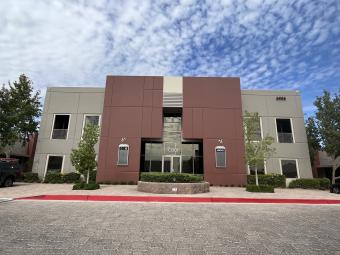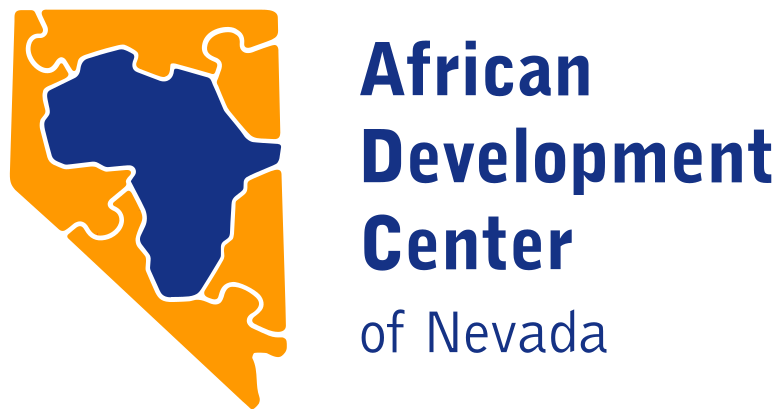
At ADC CEO Nasibu’s request ADOLV committee member Biar Kuek connected with Las Vegas real estate agents and helped identify possible locations for the future ADC Nevada offices. Biar’s contacts located and recommended a couple of possibilities.
Nasibu visited Las Vegas and looked at the spaces with Biar. The first, by Nasibu’s account, was very nice, but larger than needed and expensive. Also, the space plan didn’t seem well suited to the operational model Nasibu has in mind.
When touring the second—and chosen—space, Nasibu says he “fell in love”. It is a “beautifully designed co-working space”. And, uncommon in co-working settings, while more suitable to ADC’s needs, it is designed without cubicles, affording more privacy.
There are many amenities including a building receptionist during business hours, a large parking lot, many small rooms, 3 large executive board rooms, and an expansive training room. And, all are available for shared use.
Tenancy includes wifi, a phone network, and internet access in every space large and small throughout the building. However, since ADC offers financial services, they will build out their own secure networks for telephone and internet. The ownership has also included some well-suited furniture in the ADC-committed spaces.
The building is located in a very quiet mixed commercial and light industrial area only 10 minutes from the Nevada Boulevard “strip”, and with easy access to freeways. The vast majority of African immigrant residents and businesses are within a 30-45 minute drive of the location.
Most other available offices Nasibu visited in immigrant-accessible Las Vegas neighborhoods were smaller and without exception not as well designed, furnished or maintained. An important facet for ADC is providing an established, professional environment and image, affording the operation and its immigrant clients the respect they deserve. “That first impression matters”, Nasibu remarked.
Regus Property Management, the owner, has granted ADC a guarantee for eventual full-time access to more contiguous offices, roughly half of the second floor, while only requiring ADC to pay for two until staff and activities grow.
Though it’s very early to consider it, there is an appeal to possibly buying the building. ADC has owned the Minneapolis building that is its headquarters for almost twenty years. Purchasing the Las Vegas location, of course, would need to follow the development of a successful operation. Real estate in the city is expensive. But, ADC has long been a proponent of building wealth, and trained and supported it’s clients in doing so. Nasibu observed that the prospect of owning the building in Las Vegas would present an opportunity “to lead by example” in that regard. But, he has assessed that at this point purchase wouldn’t be prudent.
Once the ADC offices open, clients will be asked to pay for some services. Eventually, the goal with owning the building would be to create a large community center with spaces and services available free of charge. The building is perfectly designed for community use.
